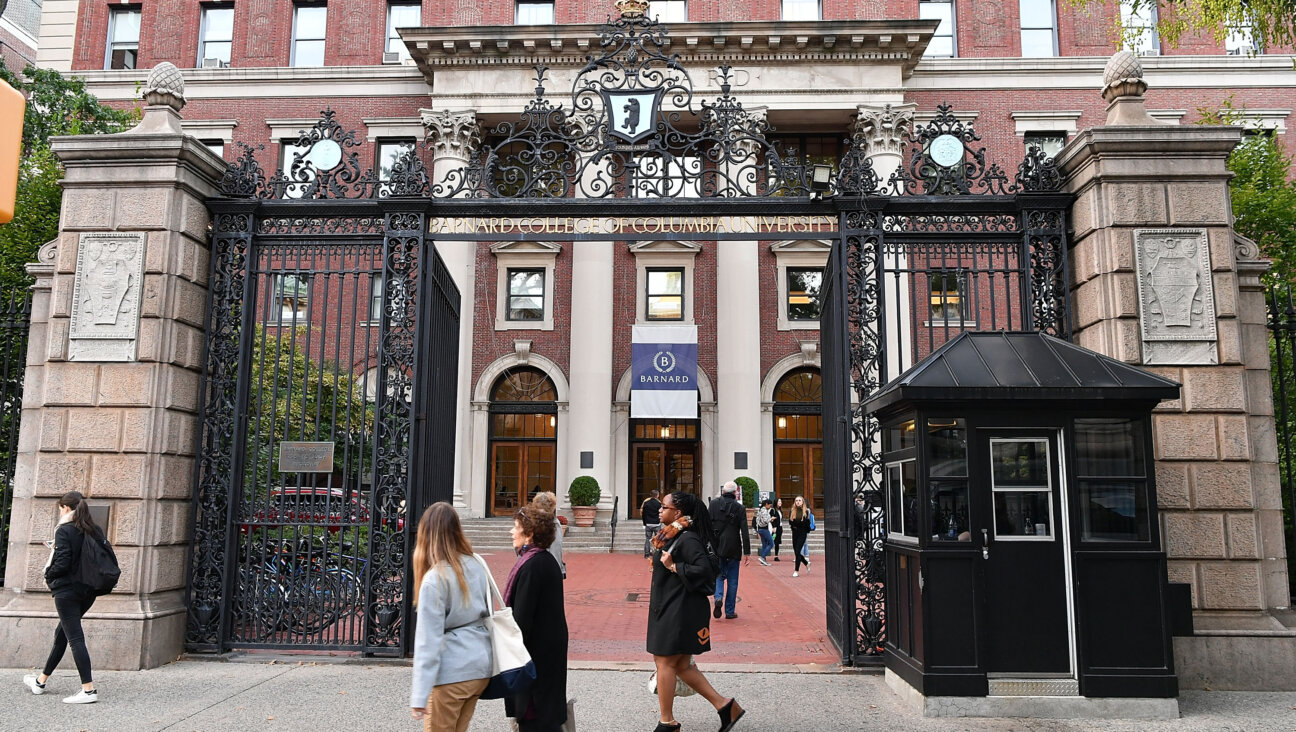DNA Bank Dilemma: Who Owns the Data?
Two years ago, the Israeli company Genomica embarked on a comprehensive and unprecedented study in which DNA samples were collected from thousands of patients to build a private DNA bank for the purpose of finding new disease-causing genes.
The establishment of the private DNA bank caught the Health Ministry off guard; no public debate had been held on the issue, and no rules of ethics had been drafted to conduct such studies. According to members of the ministry’s monitoring committee on genetic experimentation on humans — the Helsinki Committee, which authorizes genetic trials on humans in Israel — a serious discussion on the issue was held only after the company was authorized to start collecting DNA samples.
“There was a serious dilemma,” said professor Bracha Rager, a member of the Helsinki Committee and a scientist at Ben-Gurion University. According to Rager, the study has great potential to advance science and medicine, but it also raises new moral dilemmas: Who actually owns that genetic information? Is the genetic profile of a certain ethnic group a commercial resource or a resource that belongs to the community? And is a private company entitled to own the information?
Two soon-to-be published reports, which attempt to catch up with the quickly advancing research developments in the field, discuss the founding of DNA banks and genetic studies held among large ethnic groups in the population. One report was written by the National Science Academy’s advisory committee on bioethics, headed by professor Michel Revel from the Weizmann Institute. The second report was written by the ethics committee of the Israel Medical Association, headed by professor Avinoam Reches from Hadassah Hospital. The reports share many of the same recommendations. They call for establishing a statutory national authority for monitoring public and commercial DNA banks of the Israeli population as well as a national DNA bank to be run by the authority.
Revel, an Israel Prize laureate, and Reches say that the need for such an authority stems from the novel character of genetic research among large, well-defined populations. In addition, they say that as technologies for deciphering and analyzing DNA improve, the desire to build additional banks will intensify.
“The report was written to regulate the research, recognizing its potential,” Revel said.
Revel committee members propose calling the new body “the authority for genetic sample collections and information of the populations in Israel.” Under the two proposals, the authority will formulate ethical rules for performing studies on ethnic communities and large population groups.
Reches emphasizes that the authority will also supervise the research itself. “The greatest problem today is that the minute the study is authorized, there is no follow-up on what is actually done within its framework,” he said.
But Revel and Reches are skeptical about the possibility of establishing a public DNA bank. “In an economic reality that calls for downsizing, I doubt whether this will happen in the near future,” Revel said.
But even now, the proposal raises problems of ethics. “The production of a genetic profile of a group that can be defined according to its ethnic background or national sources, may lead to the risk of stigmatizing all members of the group,” the committee members write. “Even worse, it may lead to various types of discrimination — moral, physical or economic.”
According to professor Hagit Messer-Yaron, head scientist at the Science, Culture and Sports Ministry, alongside the likelihood that the establishment of such a DNA bank would advance pharmaceutical developments and new diagnostic methods, “there exist multiple risks and costs.” She notes the issue of privacy protection for individuals whose DNA samples will be held at the bank. Another question that arises is whether researchers will be allowed to profit financially from the bank. Just as various university researchers have patented their findings after discovering new genes, will a national DNA bank, which is to be established with the public’s money, be used to make personal profits?
To allow those who donate DNA to the bank to profit from the privatization of the research, the Israel Medical Association ethics committee recommended that those taking part in an experiment be informed of their personal results by their doctor, while maintaining medical confidentiality.
“But what if a person doesn’t want to know that he is the carrier of a severe mutation that will lead to a severe disease at a young age,” asks professor Asa Kasher, an ethicist at Tel Aviv University and a member of the ethics committee. “The people who come to the DNA bank did not ask to be informed of their genetic traits before the research was conducted. The doctor will face a dilemma, and we must develop new tools to allow us to differentiate between those who want to know and those do not.”
But genetic information is also characterized by the fact that it has implications not only for the individual taking part in the research but for the ethnic group he belongs to, said Vardit Ravitzky, writing her doctoral thesis at Bar-Ilan University on the issue of ethics and genetics. This question exists regarding genetic exams that detect mutations that cause increased likelihood for suffering from diseases and the capacity to detect whether the chances for similar mutations exist in family members and children of the person examined. Gathering information on ethnic groups in Israel, such as Ashkenazis, Ethiopians and others, raises new questions.
“The information may have both positive and negative implications that relate directly to members of the community, whose members did not give their consent to the research,” Ravitzky said.
Hadassah Hospital’s Reches says that the report’s recommendations attempt to address this question and suggest that in cases of special “ethnic” groups, such as Ethiopians or Druze, consent for conducting research should be requested not only from those participating in the research, but from community leaders.
According to Tel Aviv University’s Kasher, it is customary today to perceive the community from which the DNA was taken as having a position on how it is used in scientific research. “This is actually the ethnic community’s genome,” he said.
This article is used with permission from Ha’aretz, whose Web site is www.haaretzdaily.com.
The Forward is free to read, but it isn’t free to produce

I hope you appreciated this article. Before you go, I’d like to ask you to please support the Forward.
Now more than ever, American Jews need independent news they can trust, with reporting driven by truth, not ideology. We serve you, not any ideological agenda.
At a time when other newsrooms are closing or cutting back, the Forward has removed its paywall and invested additional resources to report on the ground from Israel and around the U.S. on the impact of the war, rising antisemitism and polarized discourse.
This is a great time to support independent Jewish journalism you rely on. Make a gift today!
— Rachel Fishman Feddersen, Publisher and CEO
Support our mission to tell the Jewish story fully and fairly.
Most Popular
- 1

Culture Trump wants to honor Hannah Arendt in a ‘Garden of American Heroes.’ Is this a joke?
- 2

Fast Forward The invitation said, ‘No Jews.’ The response from campus officials, at least, was real.
- 3

Opinion A Holocaust perpetrator was just celebrated on US soil. I think I know why no one objected.
- 4

Fast Forward Columbia staff receive texts asking if they’re Jewish, as government hunts antisemitic harassment on campus
In Case You Missed It
-

Fast Forward Trump nominee Ed Martin, who praised a Nazi sympathizer, also compared Biden to Hitler
-

Opinion RFK Jr. and Trump are talking about an ‘autism registry’ — this sounds disturbingly familiar
-

Fast Forward Heavy police presence blocks anti-Israel protest in Brooklyn from reaching Jewish neighborhood
-

Yiddish קאָקני־ייִדיש“: אַ פּאָדקאַסט, אַ לשון און אַ שטײגער לעבן‘Cockney Yiddish’: A podcast, a language and a way of life
צװײ לאָנדאָנער היסטאָריקערינס לעבן אױף דאָס ייִדישע „איסט ענד“ אין אונדזער פֿאַנטאַזיע
-
Shop the Forward Store
100% of profits support our journalism
Republish This Story
Please read before republishing
We’re happy to make this story available to republish for free, unless it originated with JTA, Haaretz or another publication (as indicated on the article) and as long as you follow our guidelines.
You must comply with the following:
- Credit the Forward
- Retain our pixel
- Preserve our canonical link in Google search
- Add a noindex tag in Google search
See our full guidelines for more information, and this guide for detail about canonical URLs.
To republish, copy the HTML by clicking on the yellow button to the right; it includes our tracking pixel, all paragraph styles and hyperlinks, the author byline and credit to the Forward. It does not include images; to avoid copyright violations, you must add them manually, following our guidelines. Please email us at [email protected], subject line “republish,” with any questions or to let us know what stories you’re picking up.














